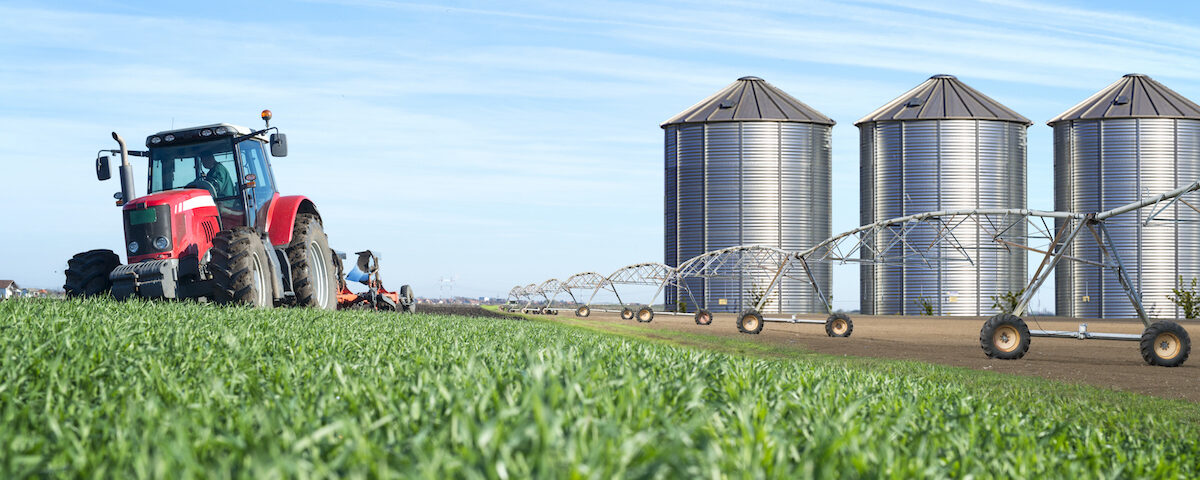The youth are Africa’s biggest economic resource, and this is an important opportunity to help boost economic growth and development on the continent.
Sadly, majority of the over 60% of the continent’s youth who are 25 years and below are unemployed due to lack of economic opportunities.
According to leadersofafrica.org, “while 10 to 12 million young people enter the labour market each year, only 3 million formal jobs are created by African countries, leaving the majority of the youth unemployed or forcing them to settle for low-paid and low productive jobs in the informal sector to make ends meet.”
However, agriculture is said to have a greater potential to deliver the continent of Africa and all her over 1.4 billion population from poverty, malnutrition, diseases and hunger. Through innovative large-scale agriculture, many Western and Asian countries including Britain, Canada, America, Italy, France, Germany, China, Japan, India and Malaysia, have successfully freed themselves from extreme forms of poverty, hunger and malnutrition. They have been able to add value to what they produce and maximize the gains to industrialize and diversify their economies.
The next 100 years is probably Africa’s last opportunity to break away from poverty, hunger and malnutrition by mobilizing the strength of her youthful population coupled with technology to expand her agriculture potential like Europe, North America and Asia.
Thankfully, many agribusiness companies are emerging across the continent and one of them is the A & G Agro-Mechanical Industries Limited and Abanga Farms & Food Systems Limited, subsidiaries of the Abanga Group with headquarters in Ghana and offices in Liberia and Namibia.
“Our vision is to empower agricultural communities to eradicate hunger and poverty by providing mechanized and innovative systems to farmers to improve their current agricultural practices beyond mere subsistence into sustainable businesses and farming practices”, said Thomas Abanga, founder and CEO of Abanga Group.
In line with A & G Agro-Mechanical Industries’ vision, six farm mechanization centres, showrooms and training centres are to be set up at strategic locations in all its three operational countries including Ghana.
“These six mechanization centres will have a total of 600 workers or tractor operators assigned to 240 tractors which they will use to do land development, land preparation, seeding, husbandry, harvesting and postharvest loss technology for farmers on rotational basis known as agro-service loans scheme. Aside that, there are spare parts depots at each of these centres that will ensure an effective turnaround time for the maintenance of broken-down tractors and other farm implements.
Also, our showrooms are to be stocked with modern tractors, accessories, reapers, trans-planters, seed drills, pneumatic planters, harvesters, power drills and mobile workshops whereas the training centres will provide an avenue for farmers especially the youth to be trained on farming and farm machinery operation”, Mr. Abanga explains.
About 72,000 farmers, 12,000 at each of the six mechanization centres in Ghana, Liberia and Namibia would be engaged to work and earn income. 144,000 hectares of land is expected to be processed at the height of A & G Agro-Mechanical Industries and Abanga Farms operationalization of all six mechanization centres and training centres leading to the realization of 360,000 metric tons of yield per farming season.
Abanga Farms have so far acquired 10,000 hectares of arable lands in Liberia and another 10,000 hectares in Namibia to be developed into commercial farms. Eight thousand (8,000) hectares would be used for production in each country while the remaining 2,000 hectares would be given to outgrower farmers who are mainly youth and women.
Abanga Farms would use modern technology including certified and early yielding seeds, modern farm machineries for land preparation and precision equipment like drones for chemical application. All forms of technologies used by Abanga Farms would be made available to the outgrower farmers in these countries at a fee that would only be paid after they have harvested their crops.
Abanga Farms would also provide ready market for all its farmers’ goods by purchasing the crops just after they have been harvested. The total cost of inputs would then be subtracted from the total cost of crops purchased and the difference is given to the outgrower farmer.
With our renowned, highly experienced and internationally recognized agricultural mechanization and irrigation experts who have consulted for the Food and Agriculture Organisation of the United Nations and Ghana’s Ministry of Food and Agriculture among others, we are upbeat to make the African youth more resourceful than ever before in terms of knowledge and practical experience in farming which would grant them the ability to earn good income, and extricate themselves and their families from poverty and malnutrition.
By The Abanga Group/PR Unit


